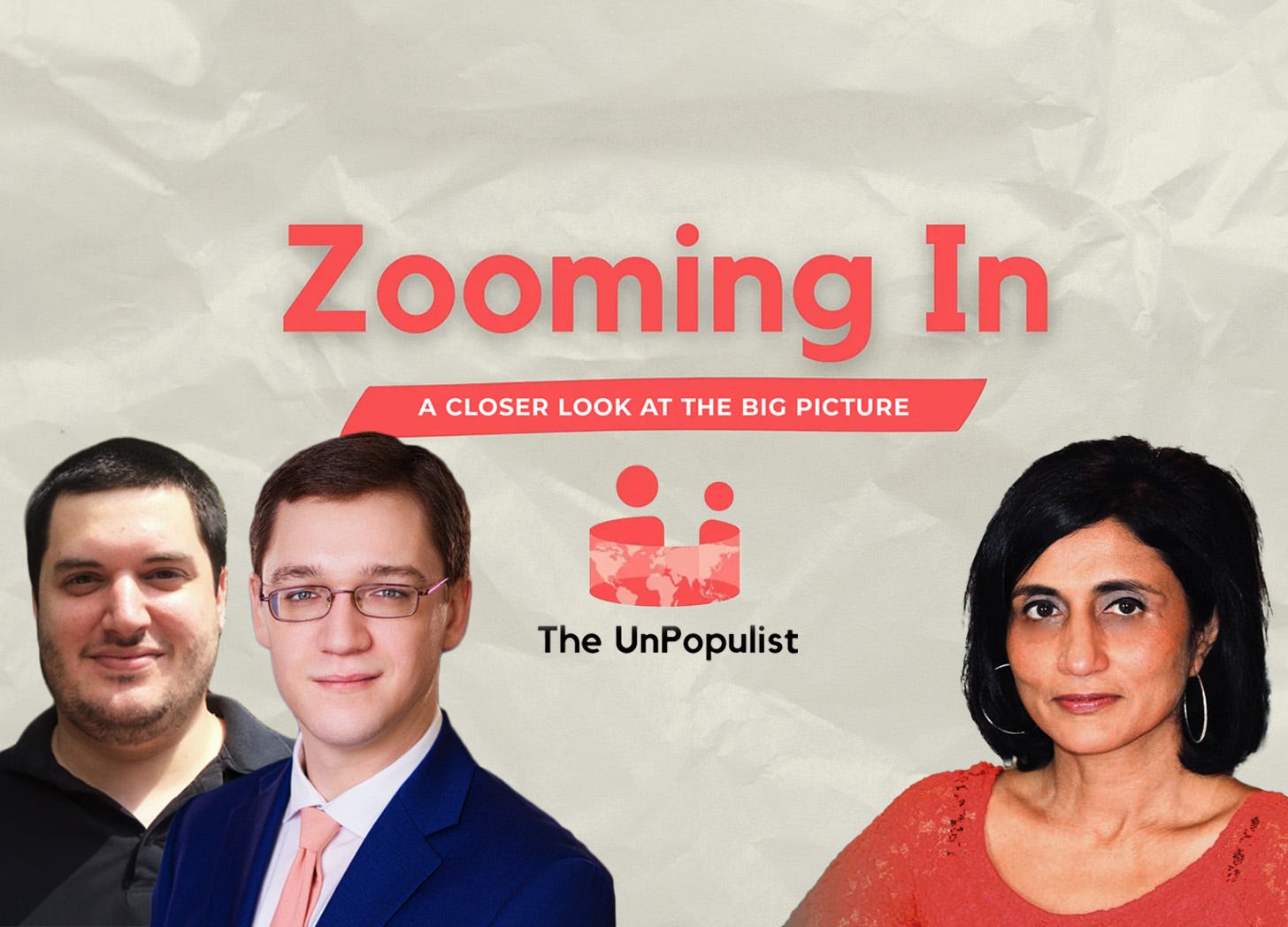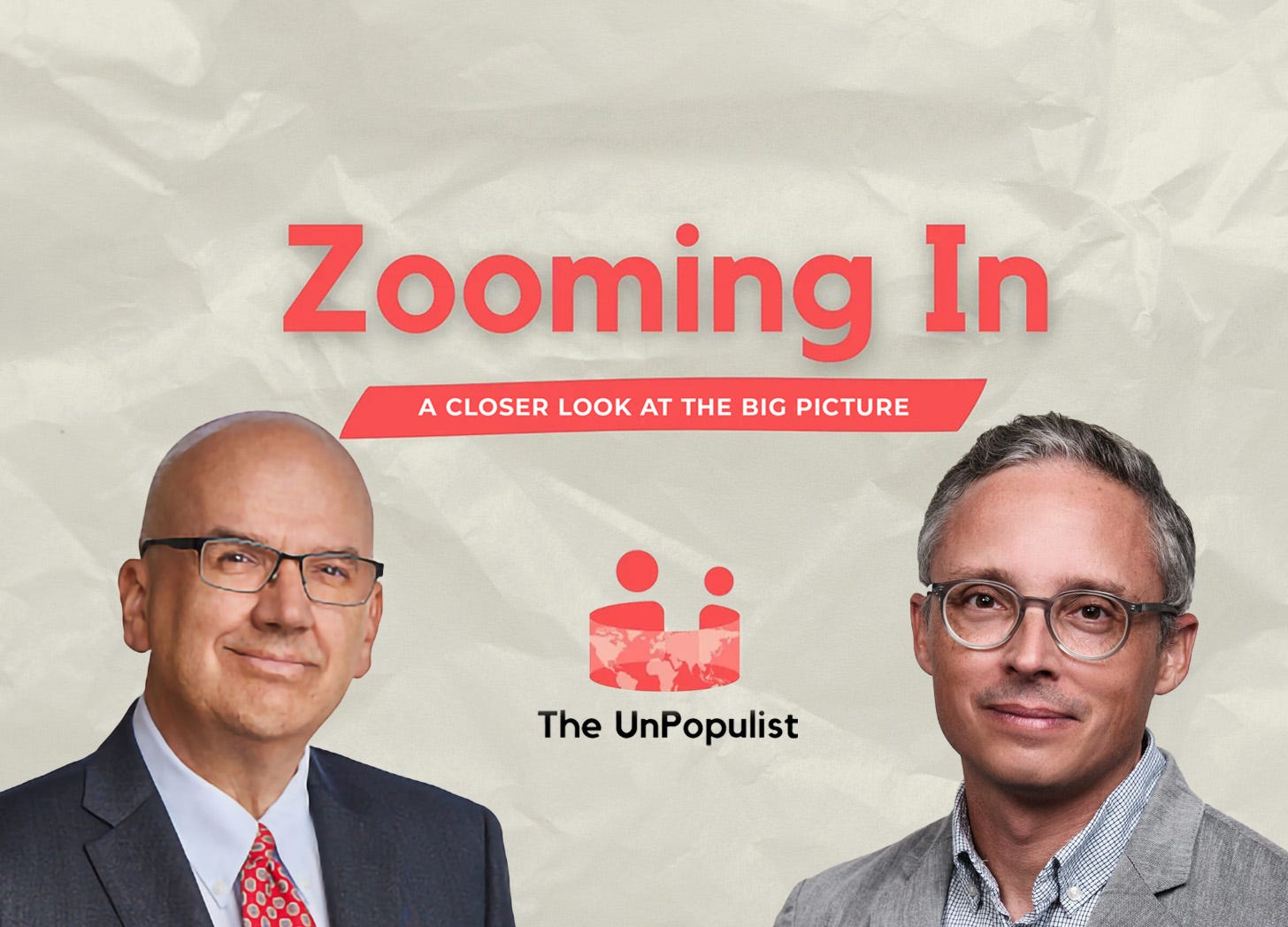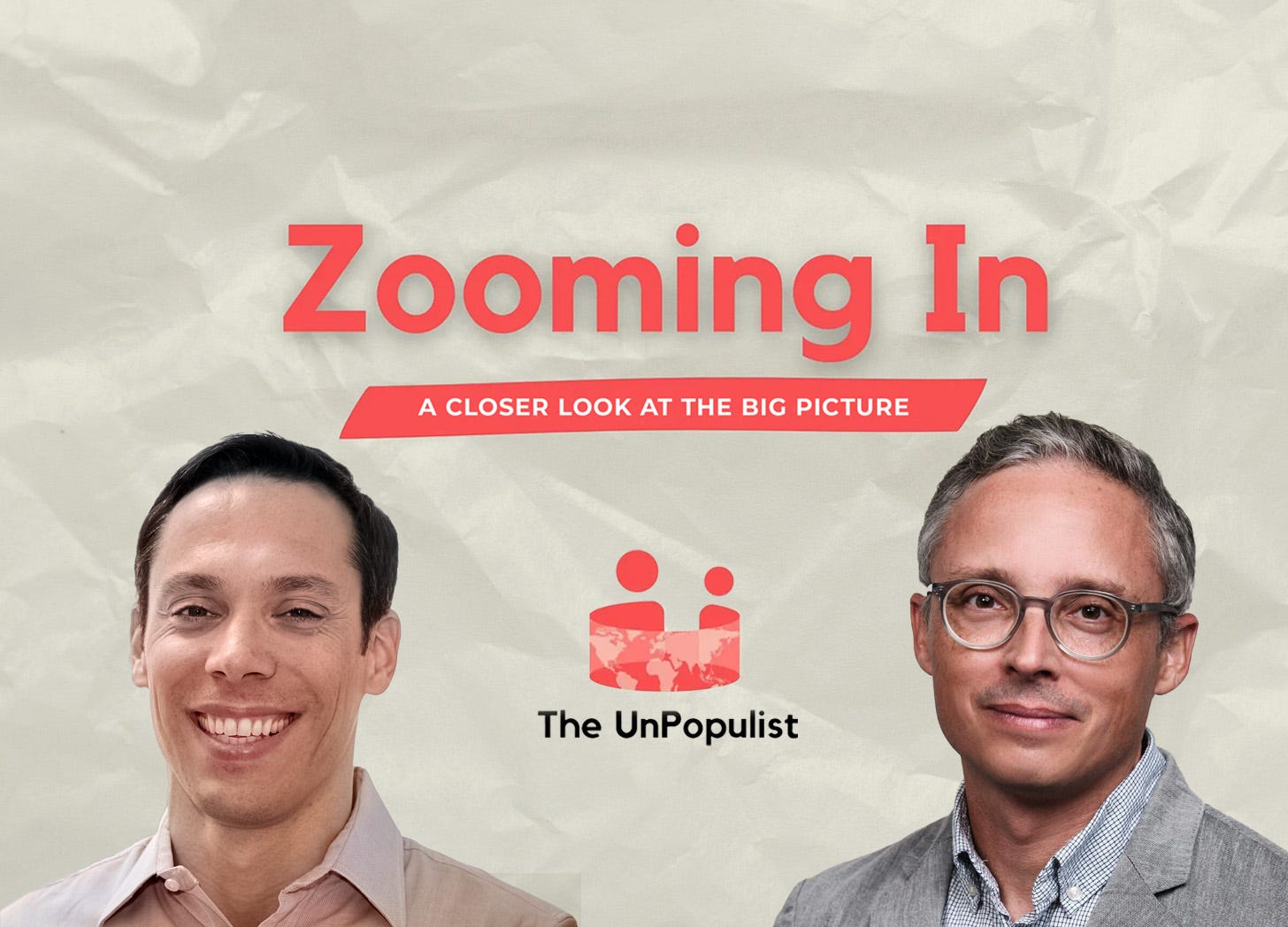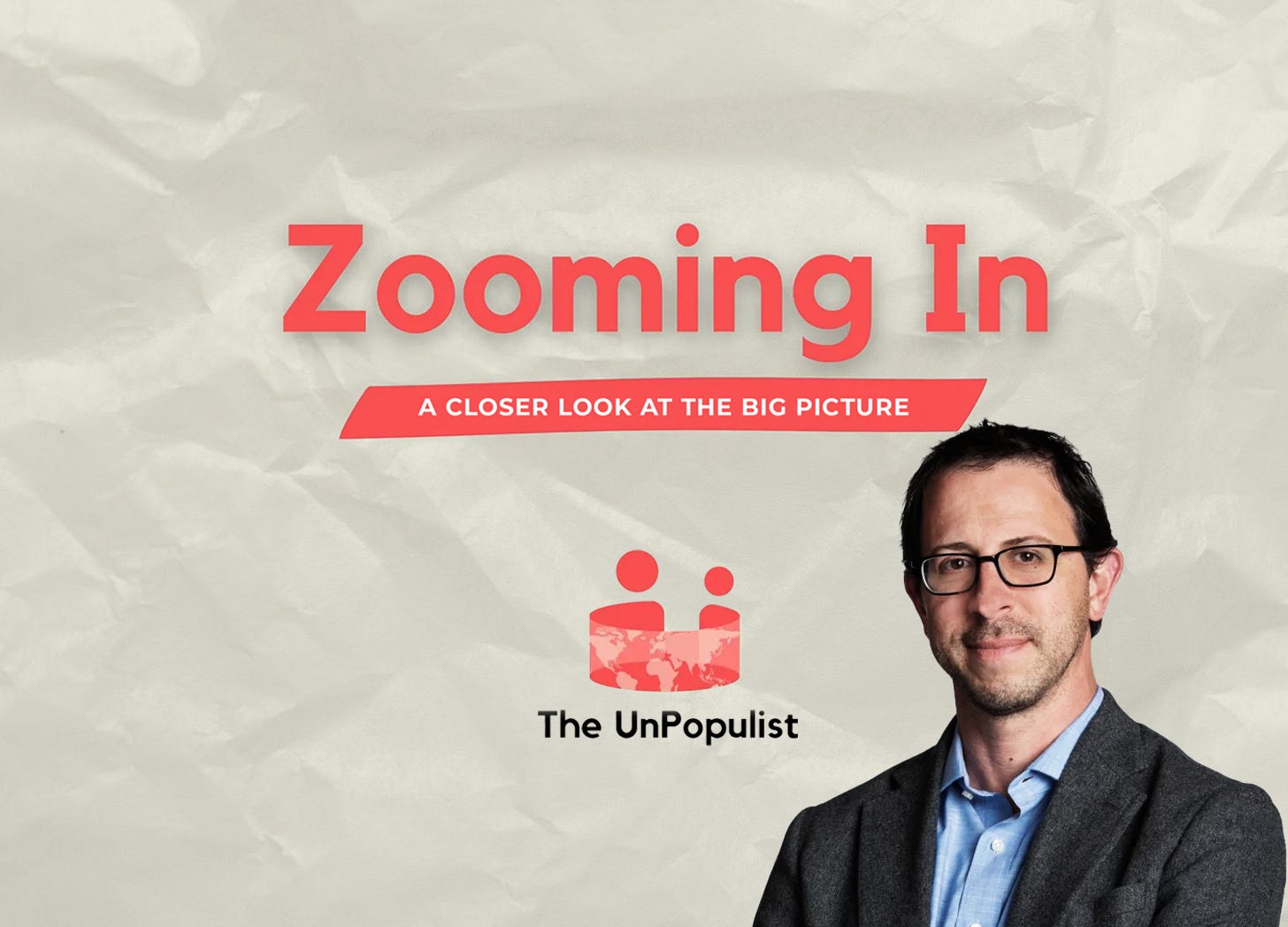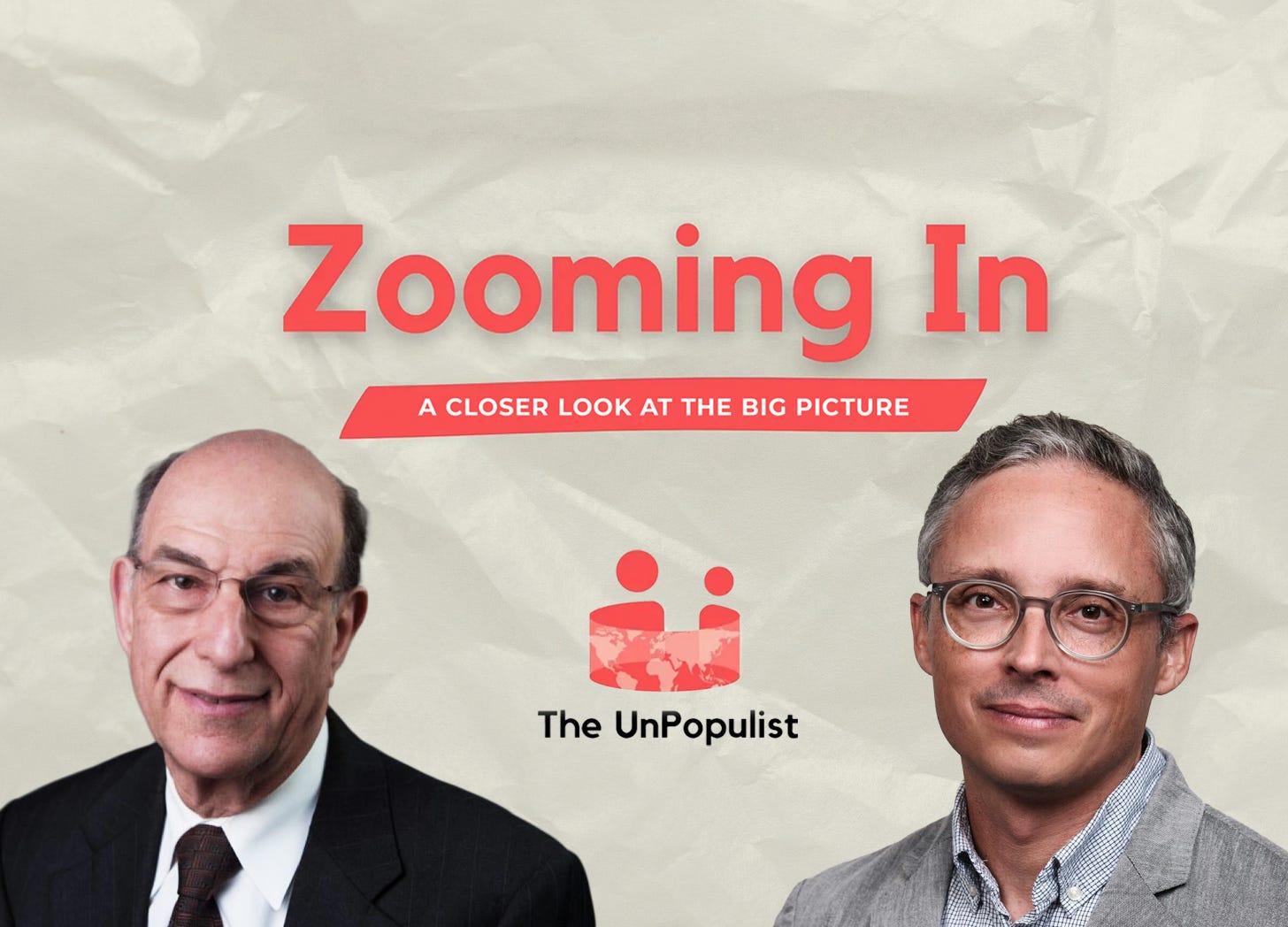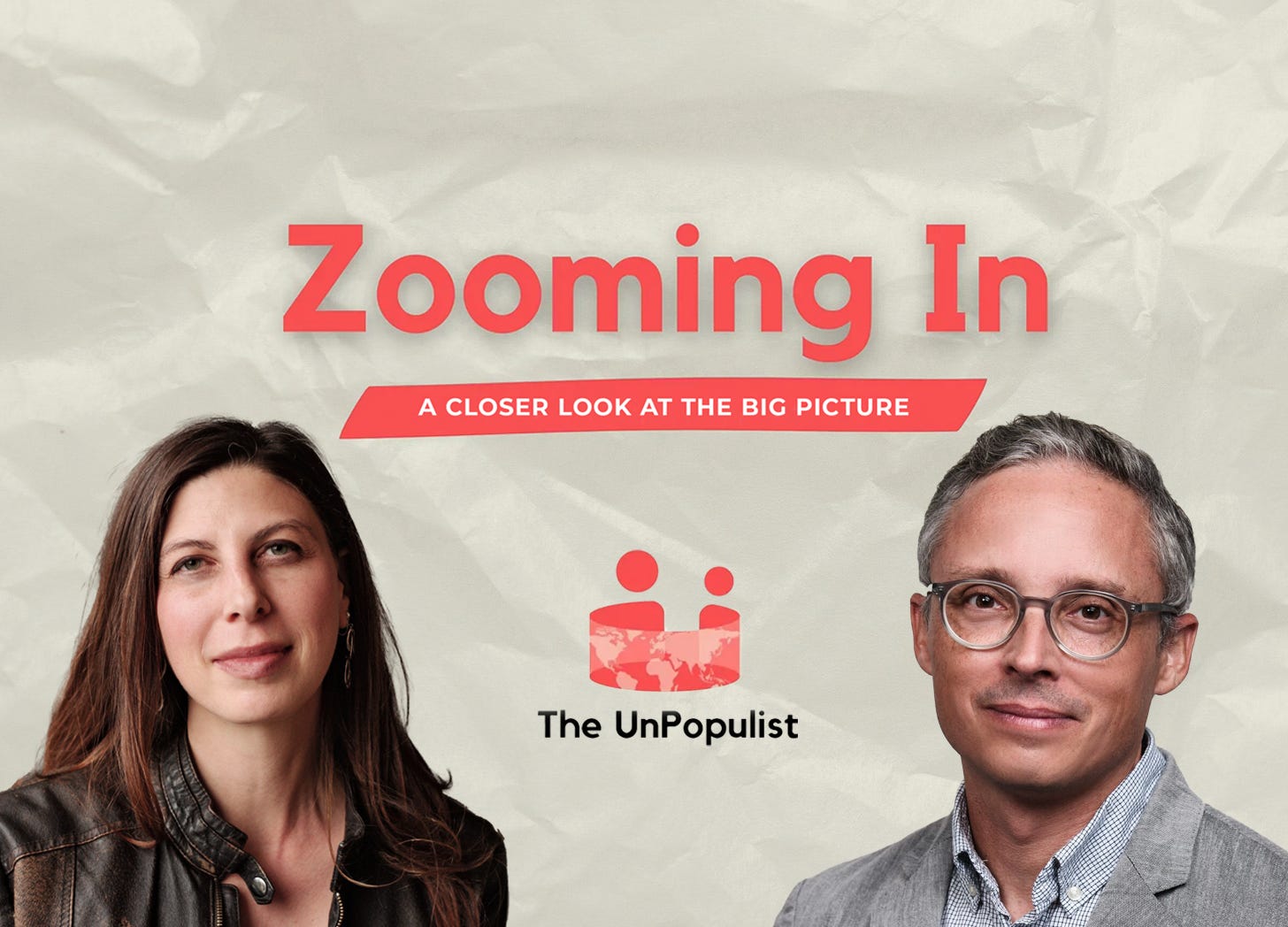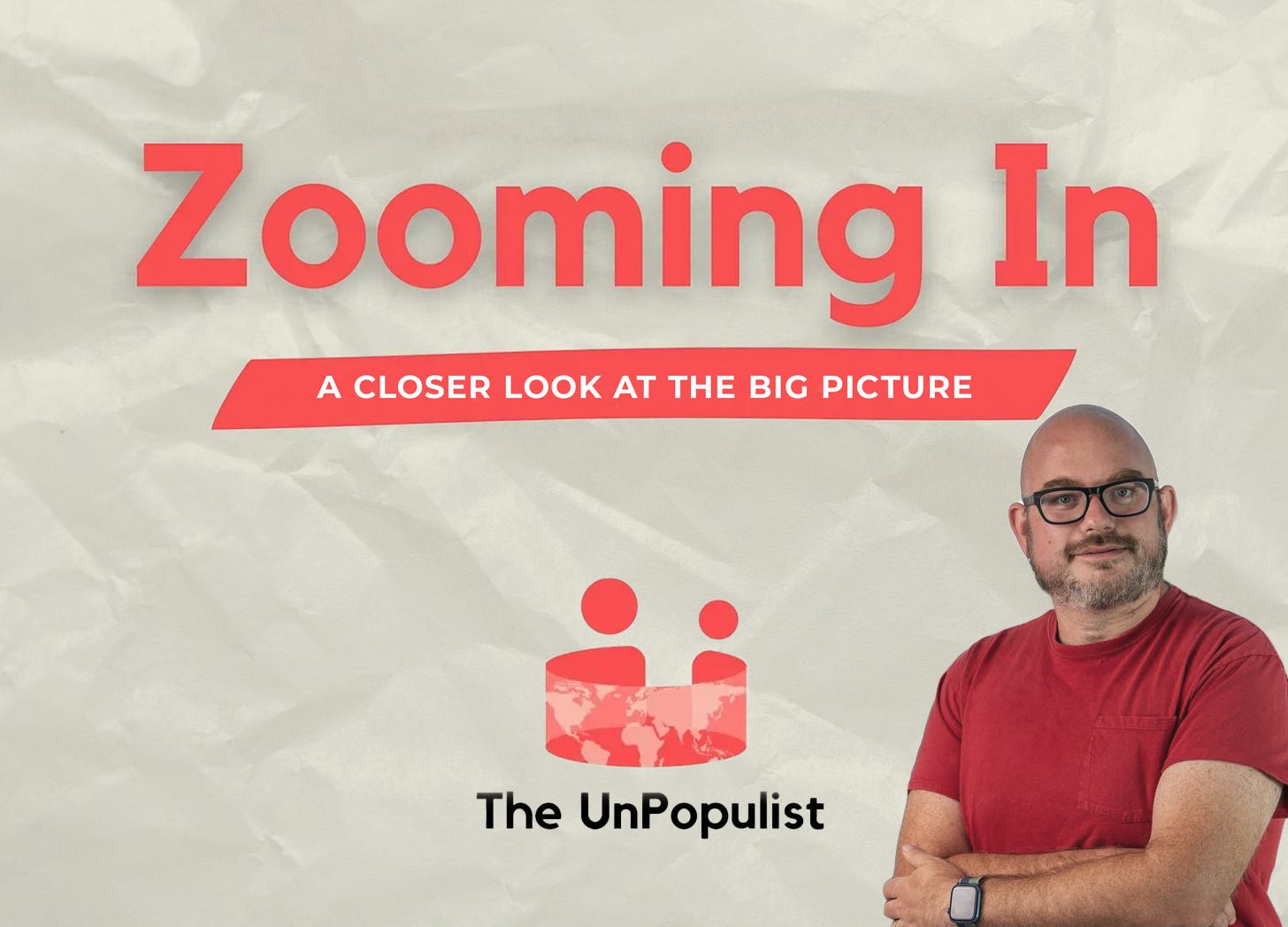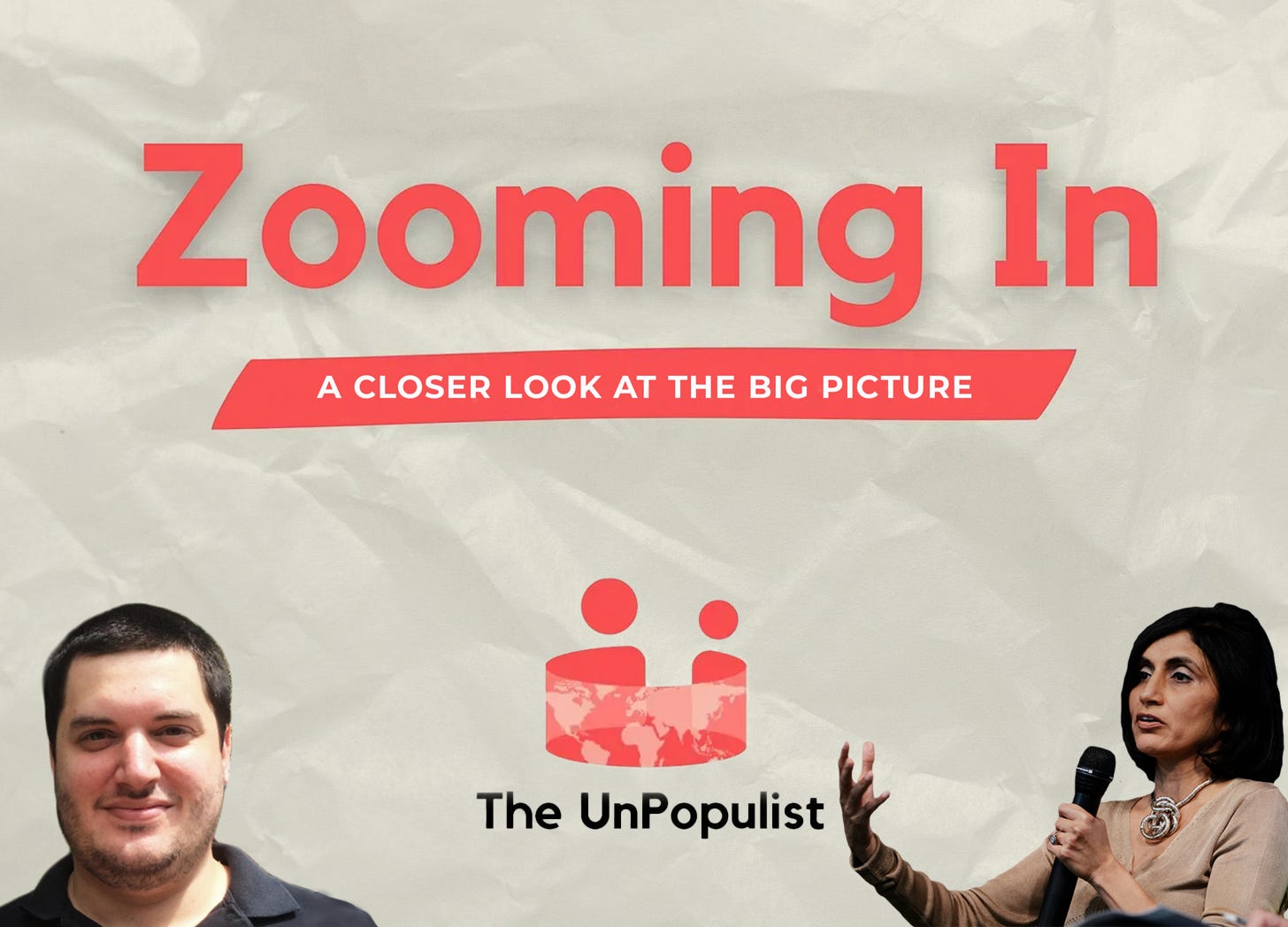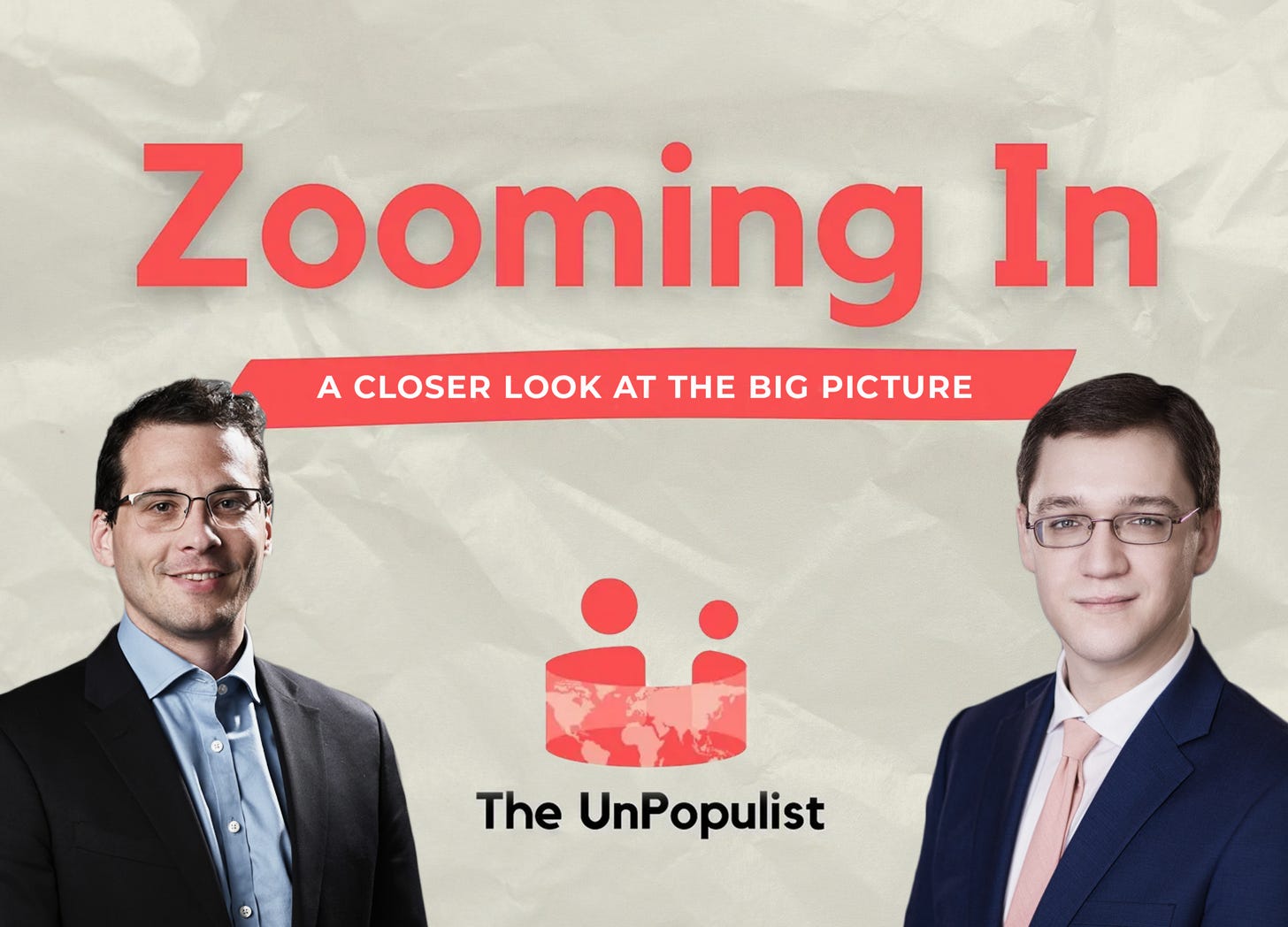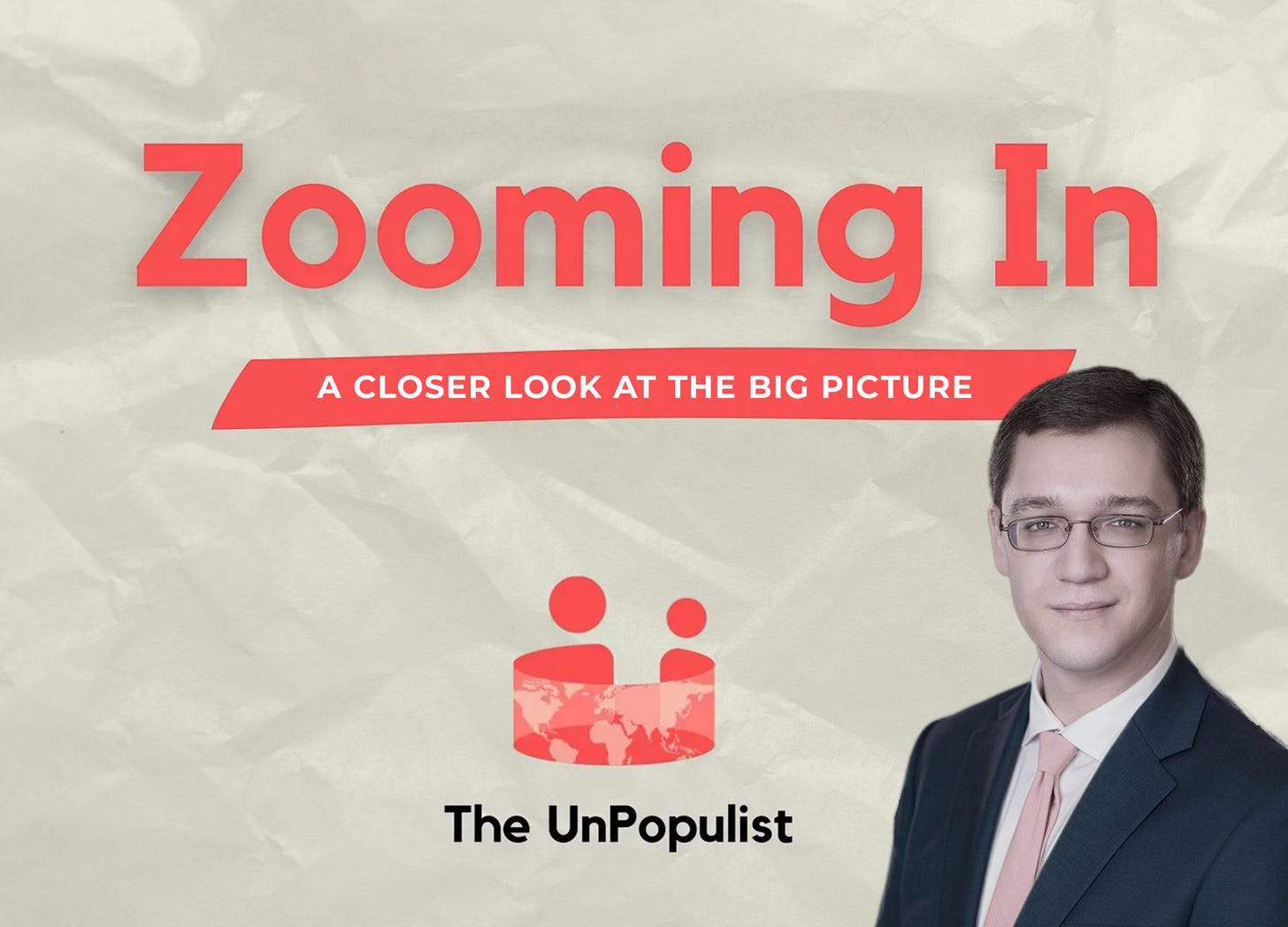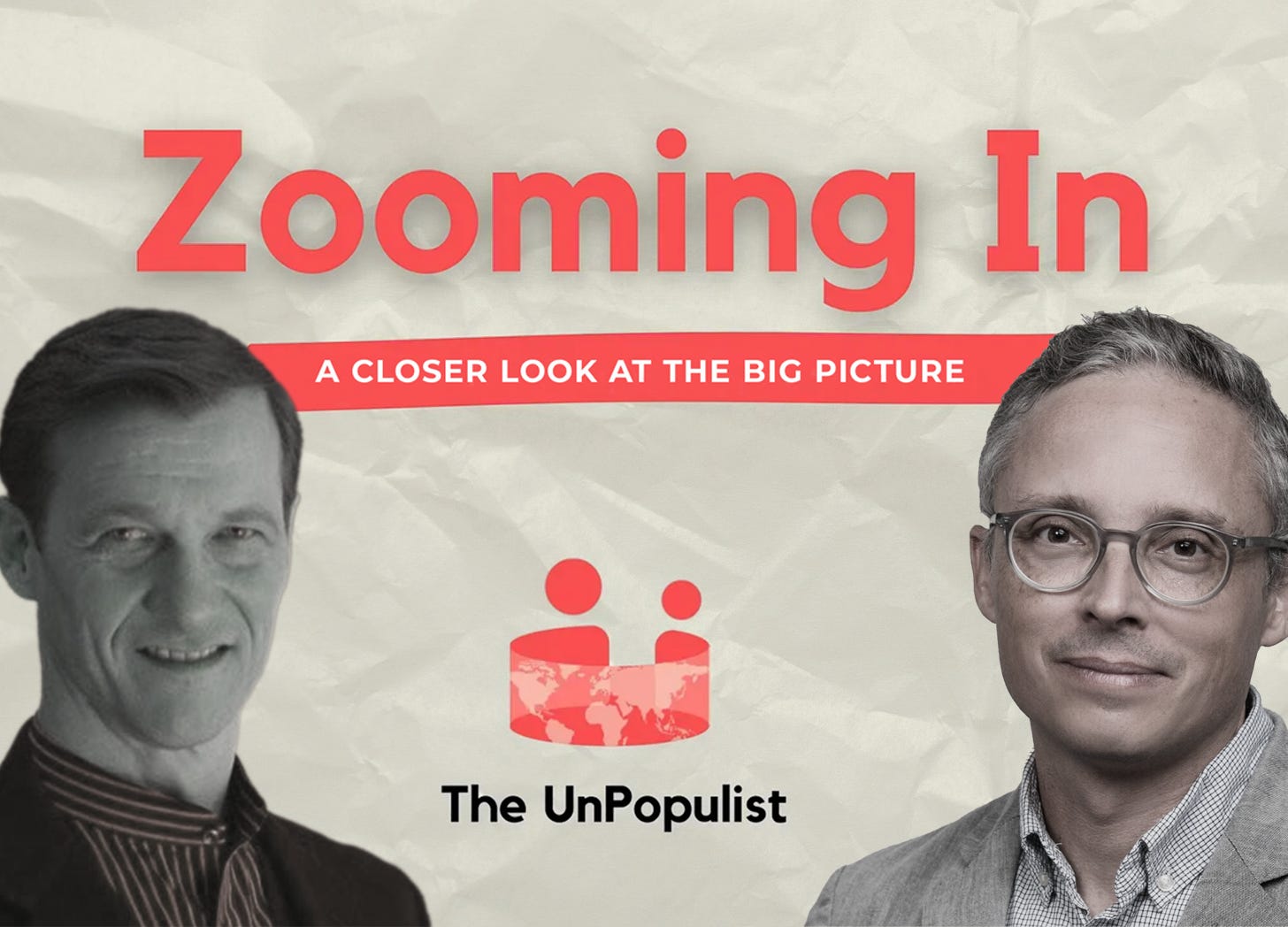How Not to Reform the "Deep State": The UnPopulist Editor's Roundtable
Description
Aaron Ross Powell: Welcome to Zooming In, a project of The UnPopulist. I'm Aaron Ross Powell. I'm joined today by my colleagues, Shikha Dalmia and Akiva Malamet for our editors' round table. Recent reporting has uncovered plans by Trump allies, and Trumpist think tanks, and other organizations to deconstruct the administrative state.
A transcript of today’s podcast appears below. It has been edited for flow and clarity.
Aaron Ross Powell: I think all of us agree that the administrative state is unaccountable and too large, so what's wrong with Trump's plans to reform it?
Shikha Dalmia: Good morning, Aaron and Akiva. We haven't done this in a while, right? We are getting together in this format after a long time, but I'm surprised, Aaron, you didn't use the word “deep state,” because that's the term of art these days, right? What's wrong with the “deep state?” There are actually plenty of things wrong with the deep state, but we actually in the US don't really have a deep state.
Deep state is an idea that was originally meant to describe the kind of bureaucracy we had in countries like Turkey and Egypt, which was controlled by the military and security forces. They engaged in all kinds of machinations behind the scenes to control civilian authorities and the populace at large. Their functioning was completely opaque and the subject of all kinds of conspiracy theories in the Middle East.
That's not what we have here in the United States. What we have in the United States is a problematic situation, where those of us who believe in government of limited size and scope, the federal government is very large. It performs functions far beyond what, I think it's fair to say, the Founders originally visualized and the bureaucratic state, the administrative state, has grown apace.
Now, if you talk to my friend Frank Fukuyama, he will tell you that actually, the bureaucracy is not large enough because the federal government's functions have grown far, far more than the bureaucracy has, and the bureaucracy simply can't keep up with providing the kinds of professional and efficient execution that it was meant to do. Now, regardless of what you think about that view, I think from our point of view, an administrative state that in its current form is quite problematic, but it is part of a bigger problem with the federal government.
As the federal government was originally envisualized in this country, each branch had very specific role, and had very specific powers and functions. Each side was supposed to guard that, guard their functions in a very, very jealous way. The idea was that would allow the public at large to keep each government branch publicly accountable, and at the same time, each branch would provide a check on the other.
Now, that actually has not how things have worked out in the United States. Over a period of time, Congress has delegated too much of its authority to both the president and the executive agencies under the president. If you think of the War Powers Act, it was supposed to curtail the president's war-making ability. But Congress has got used to giving very large authorization of power to wage all kinds of wars in all kinds of countries post 9/11. That was one huge usurpation of power by the executive, not intentionally, but in effect from Congress.
Congress also writes very broad and vague legislations and then lets the administrative branch define them in any way it wants to. That essentially means, this is the critique of the administrative state, is that therefore the administrative branches have very sweeping legislative powers through their powers of interpretation that nobody can really control. Congress can't control the executive agencies and the president can't control the executive agencies either, because many of these people are civil servants and bureaucrats and they are protected by rules of a professional bureaucracy. So they become largely unaccountable.
If you are listening to our conservative friends, there's an additional problem, which is that the civil servants tend to be somewhat leftist in their biases. They have an ideological agenda…to promote environmental legislation or equity legislation and what have you. All that becomes a problem for them.
Now, I would be in favor of limiting the size and scope of the administrative branch if it was part of broader reform of government, where the Congress took back its legislative powers and therefore the administrative branches had to do less in terms of interpretation and execution. Then you could shrink the size of the administrative state too. But that's not what Trump is proposing.
What Trump and the Republicans are proposing is not, in my view, a deconstruction, which is a term of art, or the rationalization of the administrative state. They want to co-opt and take over the administrative state for their own ends. Their ends are essentially twofold: To punish their enemies and rewards their friends. That's what the right has been saying it wants to do for a very long time.
“What Trump and the Republicans are proposing is not, in my view, a deconstruction, which is a term of art, or the rationalization of the administrative state. They want to co-opt and take over the administrative state for their own ends. Their ends are essentially twofold: To punish their enemies and rewards their friends.”
— Shikha Dalmia
In Trump's case, it means punishing enemies not just ideological enemies, which is certainly a part of it, but actually, his personal enemies who have tried to hold him accountable for things like calling a mob to ransack the Capitol. He wants to go after Biden and Hunter Biden for purely political purposes. That's not really a reform of the administrative state. That's a co-optation of the of the administrative state.
Now, how is he planning to do that? He's got a three-part plan to do this. The first part is that all presidents get to appoint 4,000 political appointments across federal agencies. That is not something that Trump alone would do, every president does that. What is different in this case is that most presidents will look for people who have expertise and merit, have some kind of claim to merit to run the agencies. That's not what they want to do. Heritage Foundation and America First Policy Institute and then Steve Miller's, I think it's America First Legal. They have a plan to install loyalist—Trump loyalists in these positions. That's a problem.
The second part that they want to do is there are 50,000 employees who are Schedule F employees, and they are off-limits to the political branches in a certain sense. Trump wants to re-up his old executive order, which will essentially make them at-will employees and allow him to fire them. Again, if he was planning to do this in order to streamline and rationalize the administrative state, that would be one thing. That's not what it is. He [Trump] wants to flatten the points of resistance that he encountered in his initial first term that prevented him from implementing unconstitutional plans, many of which he still managed to do. For instance, on immigration and what have you. That's what he's trying to do. That's why it's all problematic from our point of view. Even though we want a smaller administrative state, we want a well-defined government with specific roles. This is not what that is.
“He [Trump] wants to flatten the points of resistance that he encountered in his initial first term that prevented him from implementing unconstitutional plans … That's why it's all problematic from our point of view. Even though we want a smaller administrative state, we want a well-defined government with specific roles.”
— Shikha Dalmia
Akiva: I think those are excellent points, Shikha. I think one of the things that's important to emphasize here is the idea that there is a distinction between harnessing government for your own ends and making government smaller in general. That really the function of what Trump wants to do is to make government a tool of his own ends. One of the things that I think is critical here is that he doesn't really have a plan for what he wants to do in society. What he does is he has certain temperaments about who he likes, who he doesn't like, who his friends are, who his enemies are, and then follows those as a almost random or not random, but very disorganized set of policies to—what he wants to do is in a very disorganized way, punish his friends and reward his enemies and rather than enact any comprehensive plan of reform. In general, what he wants to do is change institutions wholesale so that they no longer serve the so-called “liberal elites” that he's so constantly in favor of attacking.
Now, this resembles in many cases a similar plan that has been enacted in many European populist contexts in Hungary, Turkey, Poland, and so on, where there's no real plan for what government should or shouldn't do. There's an idea that there are certain people in power who we don't like, certain outgroups, social outgroups—liberals, feminists, gay rights advocates, and so on. We want them out of power. Instead, we want to put in our own socially conservative, hardline, nationalist stormtroopers. In essence, what we have is a cultural fight over which culture should the institutions of government be wielded. Should they be wielded in favor of a progressive "woke agenda" or they should be wielded in favor of a socially conservative, regressive, reactionary agenda? Of course, independent of whether you're on one side or another, there's one


